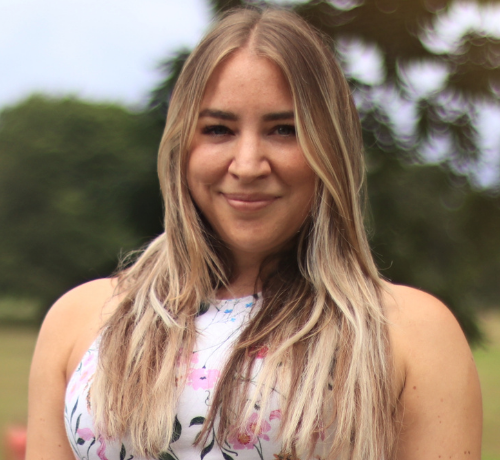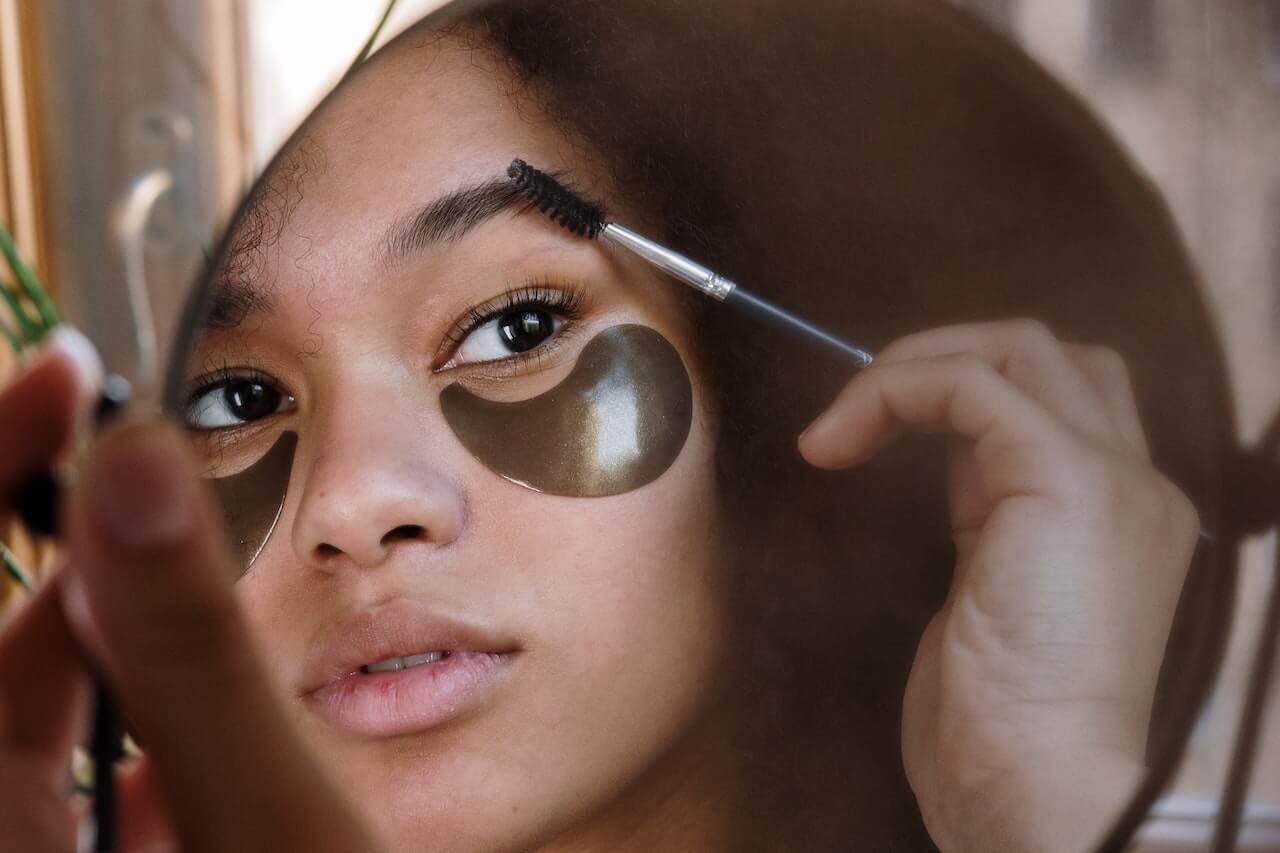Sometimes, after a long day, it's all you can do to take a shower and wash your hair before collapsing into bed, which means your hair will still be wet once you hit the sheets. But is it wise to drift off to dreamland with damp tresses?
Without a doubt, the topic of going to bed with wet hair brings out strong opinions in people. Some believe it permanently damages the strands and others think it's plain unhygienic. Plus, you've likely heard that sleeping with wet hair can cause you to catch a cold. So what's the truth?
To find out, VEGAMOUR interviewed salon owner and hair educator Natalie Crank to work out whether there's ever a good time to go to sleep with wet hair. Plus, what products you should use to keep your scalp and your hair healthy.
#include-related-slider#
Is Going to Sleep With Wet Hair Bad for my Health?
First things first, no matter what your favorite aunt tells you, sleeping with wet hair isn't going to leave you fighting a fever. "Contrary to the old wives tales, going to bed with your hair wet won't give you a cold," Crank told us. The common cold actually doesn't have anything to do with being physically cold. If someone has a cold, it's because they've been infected with a virus. The cold virus spreads through the air when an infected person speaks, sneezes or coughs. In the United States, you're more likely to catch a cold in the cooler months because everyone is indoors and in close proximity to each other.
So, sleeping with wet hair won't bring on the sniffles, but unfortunately, it can make you unwell in other ways. "Going to bed with wet hair could cause fungal infections on the scalp," said Crank. As tempting as it is to skip the hairdryer before going to bed, wet hair and a damp pillow create a warm, moist environment for fungal infections to flourish.
Fungi can cause irritating conditions like dermatitis and dandruff. "This type of bacteria breeds in damp, moist areas," Crank said. "Between the bacteria present on your pillow and the bacteria on your scalp, you make a breeding ground for fungal infections when you add moisture into the equation. And just changing the covers won't help because the water and warmth penetrate the pillow."
If you're already prone to dandruff, you could add to your flakey woes if you insist on sleeping with wet hair. "Sleeping with wet or damp hair is not something to be in the habit of," said Crank.
Healthy Scalp, Healthy Hair: Try GRO Scalp Detoxifying Serum
Does Going to Sleep With Wet Hair Cause Breakage?
If you go to sleep with your hair wet every other night, you might notice more hair damage than usual. But, of course, a good air dry can take ages and sometimes blow drying can feel like a real ordeal — especially when you can barely keep your eyes open! "Sleeping on wet hair is not necessarily bad as a one-off, but do it frequently, over a long period, and you could start to notice more hair breakage," Crank advised.
Your hair is most prone to damage and breakage when it's wet, so this is the time you need to be extra careful with it. The hair cuticle, which is the protective hair shaft layer, opens up and becomes stretchy and fragile when the hair is damp. "Hair is at its weakest and most vulnerable when wet," said Crank. "Combine this with tossing, turning and friction from your pillow, and you have a recipe for lots of breakage." Just as tugging at your delicate wet strands with a harsh hairbrush can compromise the hair cuticle, sleeping with wet hair can also do severe damage.
See: How to Detangle Your Hair Without Damage
Does Hair Type Matter If You Sleep With Wet Hair?
Of course, not all hair is made the same. If you have very fine, delicate strands, you could cause more hair damage if you constantly go to bed with wet hair. If you have curly hair, you might experience more knots and breakage because the texture is surprisingly delicate and prone to damage.
"People with curly hair might prefer to skip the blow dryer because of the hair's more fragile state...and there's always the fear of frizz," Crank said. "This can mean they go to bed with wet hair more often. To help keep curls bouncy and in the best condition, apply a gentle marula oil for a glossy, frizz-free mane. Sleeping in a plop overnight is a great solution for anyone with curly or wavy hair. It will help define the curls overnight without overdrying."
A lot also depends on how you treat your hair on the daily. If you're a chemical-color addict or you just can't put down the hot styling tools (we've all been there), you might be making your already damaged locks worse by sleeping with wet hair.
But sleeping with wet hair doesn't affect everybody negatively. Some people love the bed head effect it can create. If you notice more breakage after going to bed with wet hair, it could be time to change your habits. But if you don't see any bad side-effect, then maybe you're one of the lucky few who can get away with it!
Also: How to Moisturize Your Scalp (And Why You Should!)
The Right Way to Sleep With Wet Hair
If you just can't resist getting your nightly shut-eye before your hair is completely dry, here are a few ideas that might help ward off excess damage.
- Avoid sleeping with sopping wet hair. It's a bad idea for anyone to sleep with really wet hair. If it's so wet the pillow gets super damp, then you risk dandruff and other fungal issues. You wouldn't want to ruin your protective hair pillowcase like that!
- Pick your towel wisely. Crank said, "If you really can't dry your hair before hitting the hay, then a microfiber towel is a better option than a regular bath towel — it won't create as much friction, which can lead to damage."
- Change your shower time. "If you have to wash your hair before bed, then do it as early as possible to give it time to air dry," Crank advised. "Remember sleeping with damp hair as a one-off is fine, but if it's a long-term habit, you could run into trouble."
- Don't wear hair up. If you're going to sleep with your hair in a tight hairstyle, you could be unknowingly pulling at your hair follicles. A loose bun or braids will help create a wave, but a tight bun or pony will feel uncomfortable, create friction and may even pull hair out.
- Explore pillowcase options. Twisting and turning on a cotton pillowcase all night can create aggressive friction.
Related: How to Protect Curly Hair While Sleeping
So Is It OK to Sleep With Wet Hair?
It depends. While you won't catch a cold by going to bed with wet hair, you could create some frustrating problems over time. However, if it's late and you don't want to stay up to dry your hair, don't feel bad about hitting the hay. As long you don't make a habit of it, your hair and scalp should be fine.
#include-related-slider#
More From VEGAMOUR
- The Vegan Keratin Shampoo & Conditioner You Need to Try
- 9 Ingredients to Avoid in Shampoo (And What to Look for Instead)
- 5 Benefits of Scalp Massages (Including Hair Growth)
- Does Lack of Sleep Cause Hair Loss?
Photo credit: Clay Banks/Unsplash
Back


















